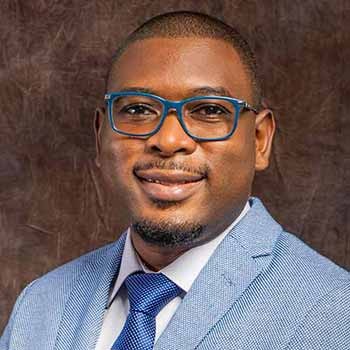I believe that personal growth happens outside one’s comfort zone. Each time I have decided to move on in my career I have had to take a leap of faith and expose myself to the unknown.
Moving from my home country of Zimbabwe to Liberia with the aid charity Welthungerhilfe was one such occasion. Then, after getting settled in Liberia and on the verge of completing my MBA at Oxford Brookes University, I decided to challenge myself further by taking on a more senior position with Welthungerhilfe, as head of finance in Sudan. Here, I’m in charge of all financial management aspects, from budgeting to compliance management. Stepping out of my comfort zone has never been a stroll in the park, but I have no regrets because it has led me to grow professionally.

To successfully tackle climate change and hunger requires ethical leaders with analytical acumen
With non-governmental organisations facing governance and corruption challenges, I believe more accountants should consider a career in the sector. Successfully tackling climate change and hunger requires ethical leaders with analytical acumen, making the right decisions to get the best value for money out of the donations received. Accountants come equipped with these vital skills, which are in great demand across the NGO and public sectors.
My finance career started over 18 years ago in the private sector in Zimbabwe. I was an accounts clerk in a small firm and eventually rose to assistant group accountant in a conglomerate. I would have continued in the private sector but felt a strong urge to serve humanity. A decade ago, I started working for Welthungerhilfe, first in Zimbabwe, then Liberia and now Sudan. Welthungerhilfe’s mission to eliminate world hunger by 2030 makes a difference in ensuring that people lead better lives, free from hunger, poverty and injustice. Knowing that my skillset helps us attain these goals is enriching.
Vulnerability to hunger has been increased by the food supply disruptions caused by the war in Ukraine
The war between Russia and Ukraine has disrupted the global food supply chain, and its impact is challenging. Some donors have reduced their grants while food prices have increased. The quantity and composition of the food rations that now reach the communities we serve in Sudan has suffered accordingly, increasing the vulnerability to hunger of those communities.
What I most enjoy about my role is the strategic planning and regular analysis of the risks that we face. I also like devising new measures to reduce our exposure to these risks. The experience of working at Welthungerhilfe with colleagues from various cultural backgrounds is rewarding, and the work itself varies every day. This, and our many locations, provide a wide range of opportunities.
I would increase the penalties for environmental crimes such as pollution and deforestation. Making it financially punitive to harm the environment would incentivise individuals and corporations to adopt more sustainable practices that benefit both the planet and society.
Outside work, I enjoy spending time with my wife, daughter and family. I read widely on leadership and development finance, and also enjoy watching football.



